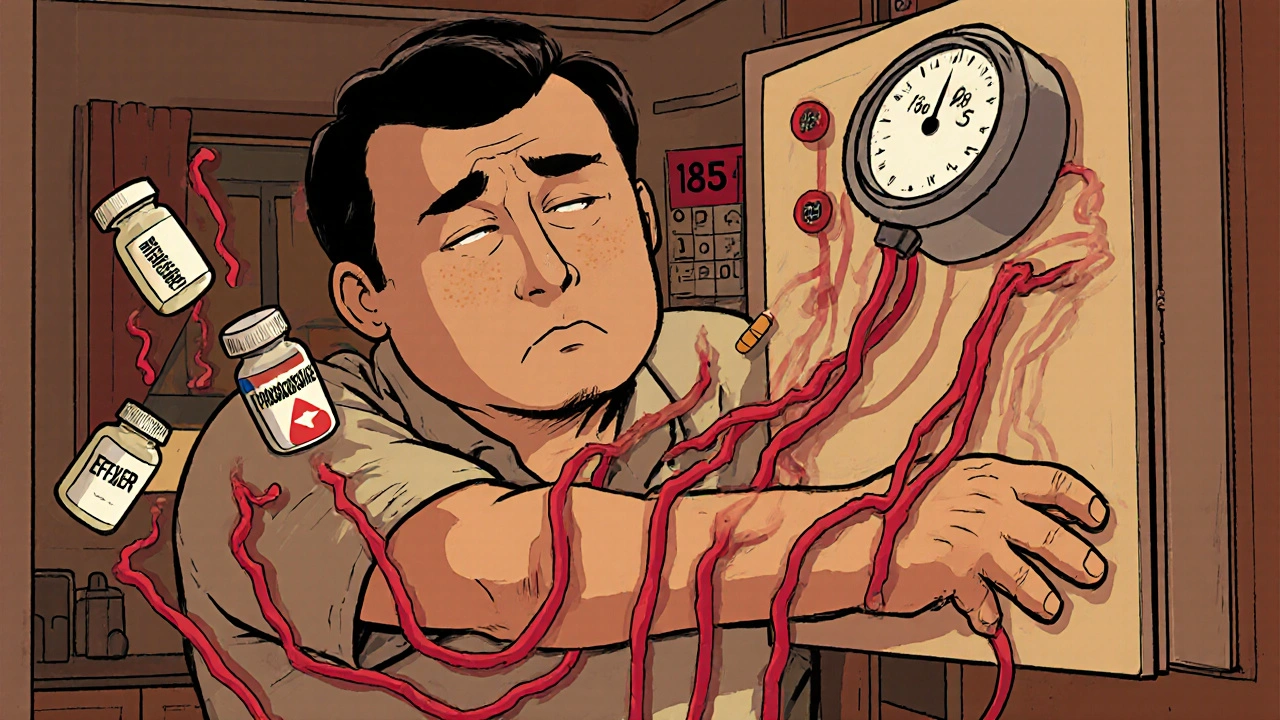Medication-Induced Hypertension: Causes, Drugs, and What to Do
When you take a medicine to feel better, you don’t expect it to make another problem worse. But medication-induced hypertension, high blood pressure triggered by prescription or over-the-counter drugs. Also known as drug-induced high blood pressure, it’s a hidden risk many people don’t realize they’re facing. This isn’t rare. Studies show up to 20% of people with uncontrolled high blood pressure are dealing with a drug as the main cause—not genetics, diet, or stress.
Some of the most common culprits are things you might not think of as dangerous for your blood pressure. Painkillers like ibuprofen and naproxen, decongestants in cold meds, certain antidepressants, steroids like dexamethasone, and even some herbal supplements can push your numbers up. Even birth control pills and nicotine patches have been linked to spikes. If you’ve been on any of these for months and your blood pressure suddenly climbed, it’s worth asking your doctor: Could this medicine be the reason?
It’s not just about the drug itself—it’s about how it interacts with your body. Some drugs make your blood vessels tighten. Others cause your kidneys to hold onto salt and water. A few mess with your hormones. For example, cyclophosphamide, a chemotherapy drug used for cancer and autoimmune diseases, can damage blood vessels and lead to lasting high blood pressure. And beta-blockers like carvedilol, used to treat heart conditions and high blood pressure, are meant to lower pressure—but if you’re on the wrong one, or take it with other meds, it can backfire. That’s why comparing drugs matters. What works for one person might worsen things for another.
You don’t have to live with this. The first step is awareness. Keep a log of your blood pressure readings and note every new medication you start—even if your doctor says it’s safe. If your numbers rise after starting something new, don’t ignore it. Bring the list to your doctor. Ask: Is this drug known to raise blood pressure? Are there safer alternatives? Sometimes switching to a different pain reliever, reducing steroid dose, or changing your antidepressant can bring your pressure back down without losing the benefit of the treatment.
This collection of articles dives into real cases where drugs affected blood pressure, heart health, and overall well-being. You’ll find comparisons between medications that seem similar but act very differently—like how carvedilol stacks up against other beta-blockers, or how dexamethasone helps COPD but can hurt your blood pressure. You’ll also see how chemotherapy drugs like cyclophosphamide and chlorambucil impact the body beyond cancer treatment. These aren’t theoretical discussions—they’re based on clinical patterns and patient experiences. Whether you’re managing a chronic condition, taking multiple meds, or just wondering why your blood pressure won’t budge, this guide gives you the facts to ask the right questions and take control.

High Blood Pressure Caused by Certain Medications: How to Monitor and Manage It
Certain medications like NSAIDs, corticosteroids, and decongestants can raise blood pressure silently. Learn how to spot the signs, monitor effectively, and manage it safely without stopping essential treatments.